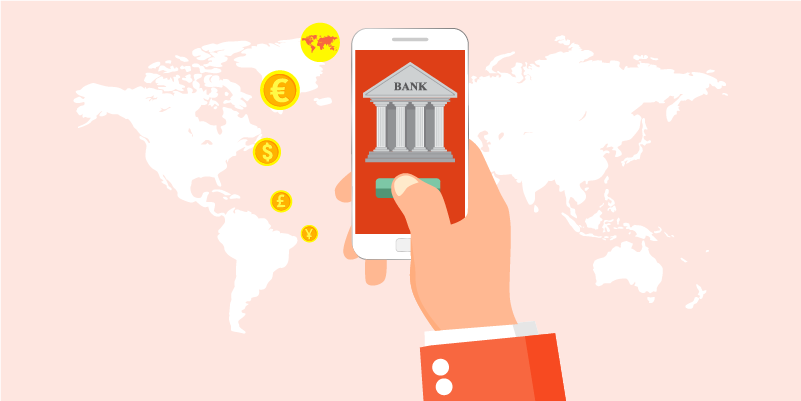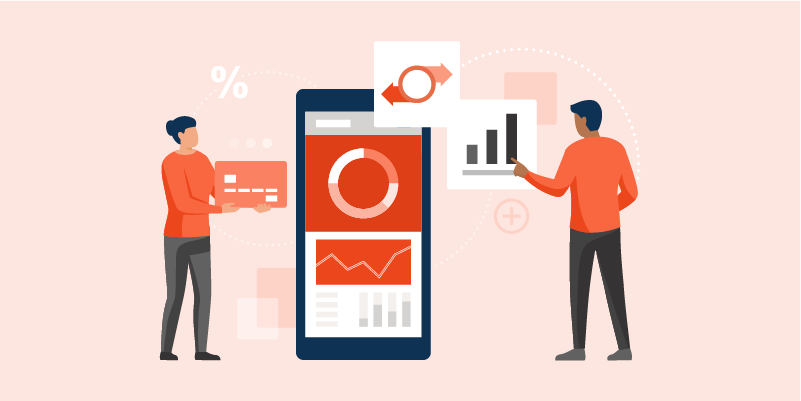Whether you are an expat, student, or considering moving to the Netherlands, financial matters are crucial to consider in every situation. Even though you are able to obtain the financial details from your overseas bank account, it is expensive and sometimes hard to make adjustments for your daily expenses.
In this guide we will explain every detail about having a dutch bank account. From the advantages, requirements, options, to step-by-step instructions to help you make the best choice for your financial needs.
Why should you open a Dutch bank account?
It may be tempting to continue using your hometown bank account when you first move to the Netherlands, but opening a Dutch bank account offers numerous advantages that make financial management easier and more cost-effective. From reduced fees and easier access to local financial products and services, a Dutch bank account is an essential tool for anyone living or working in the Netherlands.
Simplifying your daily transactions
First of all, it can simplify your daily transactions, like paying for groceries, coffee, or a meal at a restaurant. If you want to shop online, several e-commerce sites also only accept payment from a local bank account. Using a debit card or credit card linked to a local account ensures smooth payments.
Efficient and immediate international transactions
Sending money internationally from an overseas account can be expensive and time-consuming, often taking several days to process. A local bank account ensures quicker and cost-effective money transfers, saving both time and money.
Paying bills seamlessly
In the Netherlands, paying for water, electricity, gas, and other utilities is usually done through automatic withdrawals or direct debits. The utility providers would require you to provide a Dutch bank account to make the recurring payments.
Easy salary transfer
Although not all companies mandate this, it is highly recommended to have a Dutch bank account to receive your salary without a hitch. This can avoid delays and fees if your account is not Dutch. It is also easier to process tax payments, pension contributions, or access employee perks that require bank details.
Promotions and discounts
Local banks often have promotions and benefits that you can enjoy while staying in the country. You can save up credit points using a Dutch bank credit card and earn rewards. Various discounts are also often available on certain special dates.
Convenient in emergency situations
Lastly, when staying in a foreign country, an emergency might arise and you need more money than you have. If you have a Dutch bank account, you can take advantage of personal loans, overdraft protection, or credit lines in emergency situations.

What are the requirements?
All foreign applicants, regardless of their purpose (work, study, or business) require specific documents when opening a bank account in the Netherlands. Here is a detailed breakdown based on your status.
General requirements
Valid ID: It can be a passport or European ID card.
BSN (Burgerservicenummer): BSN is a citizen service number for both Dutch citizens and foreigners residing in the Netherlands. To apply for a bank account, it’s a must to have this social security number issued upon municipality registration. For foreigners staying less than 4 months, obtaining an RNI (Registratie Niet Ingezetenen) is an alternative route. Once you have your RNI, your BSN will be automatically issued to you. This process must be completed in person at one of the designated RNI municipalities.
Proof of address: Examples include a rental agreement or a utility bill.
Residence permit: Mandatory for non-EU citizens.
Tax Identification Number (TIN) from your home country.
Things to consider when choosing a bank
The Netherlands have several popular traditional and digital banks, such as ABN AMRO, ING, Bunq, and so on. Selecting the right bank involves comparing their costs, services, and accessibility. Here’s what to keep in mind:
Costs and fees
Monthly fees vary between banks. For instance, ABN AMRO charges €1.55 per month, while ING’s standard account costs €43.80 annually. In contrast, digital banks like Bunq often offer low or no annual fee.
Banking services
Look for options like savings accounts, loans, money transfers, deposits, and insurance. Certain banks also have expat-friendly services. For instance, ABN AMRO provides tailored expat support, including financial advice. Meanwhile, Bunq specializes in digital-first features like Apple Pay and Google Pay integration.
Types of accounts
Most Dutch banks offer a range of account types to suit different needs. For expats, the primary options are:
Current account (Betaalrekening)
Savings account (Spaarrekening):
Joint account:
Business account
Accessibility
Pick a bank that is easily accessible in case there is a problem with your account. This makes it easier for you to visit the bank branch, although you can opt to call or reach out to them online. Look up customer service satisfaction rates/reviews before picking your Dutch bank.
Deposit protection
Make sure that your Dutch bank is covered by the Dutch deposit guarantee scheme. This scheme can protect up to €100,000 per account holder in case of bank insolvency.
Language support
Not all foreigners staying in the Netherlands are fluent in Dutch. If you are one of them it is better to stick with local banks that offer services in your preferred language. Some Dutch banks have their services available in English, German, and Spanish.

How to open a bank account in the Netherlands
Opening a Dutch bank account requires specific documents for all foreign applicants, whether for work, study, or business purposes. Here’s a detailed step-by-step guide to help you easily open a Dutch bank account.
Step 1: Choose a bank
Choose a bank according to your preference. Each bank offers different services and fee structures. For instance, ING is known for its user-friendly banking app and excellent mobile banking services, ABN AMRO provides expat-friendly packages with English-speaking support, and Bunq is a fully digital bank offering easy account setup without a BSN.
Step 2: Gather your documents
Ensure you have all required documents ready, such as your passport, proof of address, and BSN. Missing documents can delay the process.
Step 3: Apply online or in person
Many neobanks, like Bunq, allow the entire process to be completed digitally. Meanwhile, traditional banks like ING or ABN AMRO may require an in-person visit for verification.
Step 4: Complete the application
Fill out the bank’s application form with your personal and contact details, such as employment information, and proof of identity. For online banking, you may need to upload scanned copies of your documents.
Step 5: Identity verification
The bank will verify your identity, whether in person at a bank branch or online via a secure video call. This step is typically conducted by the bank to ensure that you are indeed the applicant and that you fulfill all legal requirements.
Step 6: Set up online banking
Once your account is active, set up online banking and activate your debit card for immediate use. Also, download the bank’s banking app to manage your finances on the go.
Generally, the process can take anywhere from a few minutes to several days. If you have all the requirements ready, some banks allow you to complete the application in as little as 30 minutes when applying in person. After successfully opening your account, expect to wait about one week for your bank card and account information to arrive by mail.
How to manage and close your bank account?
You can close or switch your Dutch bank account at any time. Keep in mind the procedure varies for each bank. Some banks allow online closure, others require a branch visit.
Switching banks
If you want to change banks, ensure you:
Notify your employer and service providers about the new account.
Cancel existing direct debits and transfer them to your new account.
Closing an account
It is not difficult to close a Dutch bank account. Here are the two simple steps:
Submit a closure request online or at a branch.
Obtain written confirmation in an email or a letter to avoid additional charges on an inactive account.

How Unusual Payroll helps you
As a foreigner, not having a local bank account may hinder your daily life and financial activities. When arriving in a foreign country, the settlement process requires you to conduct various transactions, such as purchasing home decor and paying for rent. To smoothen this phase, you might need to open a local bank account quickly.
However, foreigners may not fully understand what is required to set up a bank account in the Netherlands. Unusual Payroll can help with the document preparation process so you can meet the bank's administrative requirements.
Additionally, as an employer of record (EOR), Unusual Payroll enables companies to hire without a local entity, managing contracts, payroll, and compliance with Dutch regulations. The company also supports visa and immigration processes, including applications for highly skilled migrant visas and residence permits for family members.






